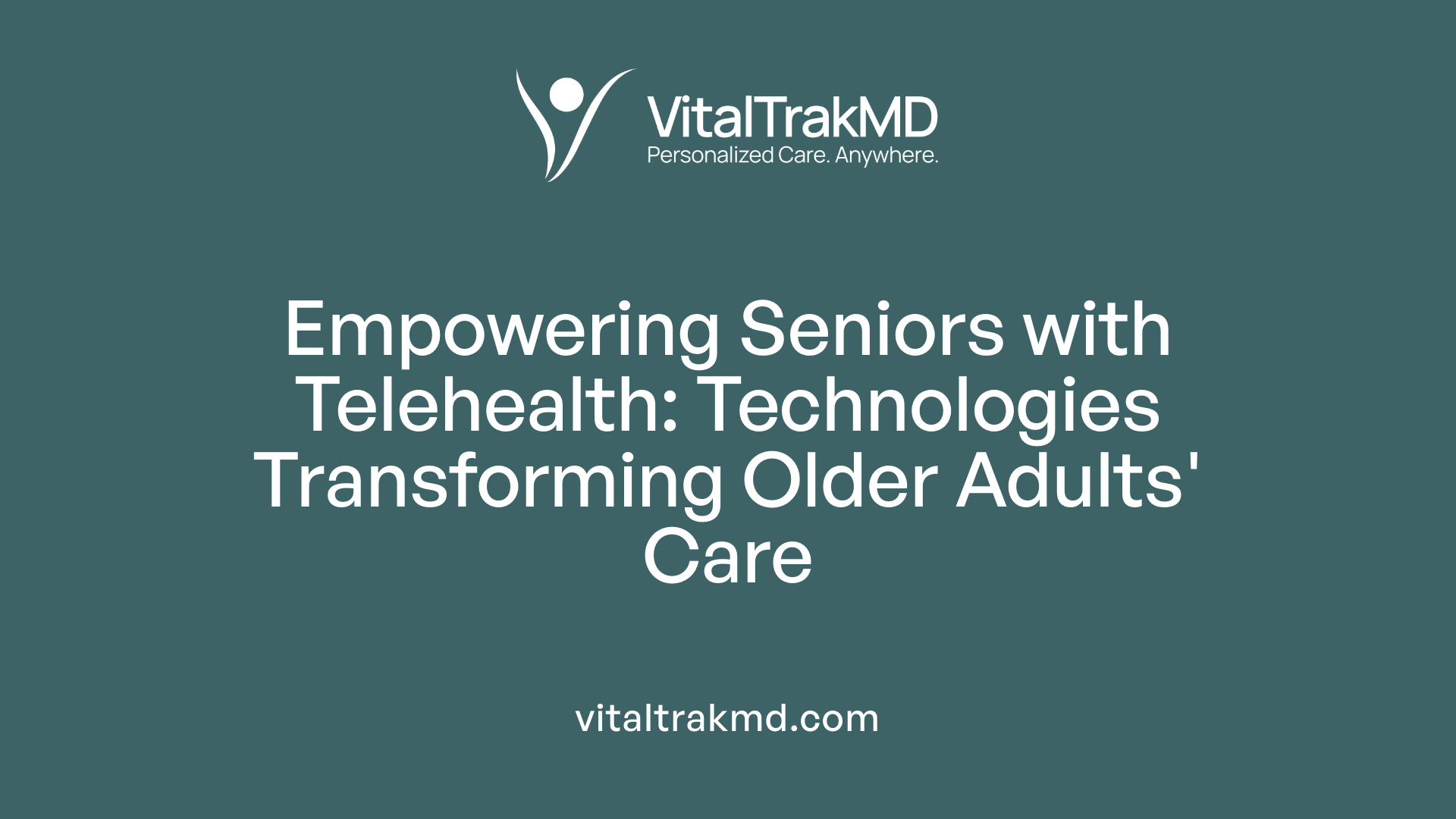How Hybrid Healthcare Supports Seniors in Achieving Long-Term Health Goals

Introduction to Hybrid Healthcare for Seniors
As the senior population grows, so does the need for innovative healthcare approaches that promote long-term health and wellness. Hybrid healthcare models, combining both virtual and in-person care, are transforming how seniors manage chronic conditions, maintain wellness, and achieve sustained health goals. This article explores how hybrid healthcare supports seniors through comprehensive, tailored care programs that bridge technology and human connection.
Understanding Hybrid Healthcare Models in Chronic Disease Management
What Are Hybrid Healthcare Models?
Hybrid healthcare models blend telehealth and traditional in-person consultations, incorporating health education to manage chronic diseases effectively. This approach leverages virtual platforms like WhatsApp, Zoom, Google Meet, and Moodle alongside face-to-face interactions to offer comprehensive care tailored to patient needs.
How Do Hybrid Models Serve Seniors with Chronic Conditions?
Seniors with chronic illnesses such as diabetes, hypertension, obesity, and pre-diabetes benefit from hybrid care by receiving continuous support that promotes long-term health. The model's flexibility allows patients to manage their health remotely while having access to in-person visits when necessary, reducing emergency visits and hospitalizations.
Integration of Telehealth and In-Person Consultations
Telehealth consultations in the hybrid model are standardized and include patient training on communication tools. In-person sessions adhere to stringent national and international quality and safety standards. This integration ensures thorough monitoring while maintaining convenience and reducing exposure risks, essential during public health challenges like the COVID-19 pandemic.
The Role of Multidisciplinary Teams
A wide-ranging team comprising medicine, nutrition, psychology, dentistry, nursing, and pharmacy specialists collaborates to provide holistic care. This collaborative approach addresses the complex needs of chronic disease management, covering medical treatment, emotional support, lifestyle changes, and education.
How Do Care Programs Improve Long-Term Health Outcomes?
Care programs using the hybrid model deliver continuous, personalized support addressing medical, emotional, and social dimensions of health. Regular monitoring and patient education encourage adherence to therapies and healthy habits, ultimately reducing complications. The ongoing provider-patient relationship fosters prevention, lowers hospitalizations, and improves overall quality of life for seniors managing chronic illnesses.
The Role of Telehealth Technologies in Senior Care

Telehealth Consultations and Training
Telehealth consultations are a cornerstone of hybrid care models, particularly valuable in senior care. These consultations provide a flexible and safe way for seniors to receive medical advice without the need to travel. Importantly, these sessions come with structured training to help patients become comfortable using the technology, ensuring that seniors can navigate digital health platforms confidently.
Use of Communication Platforms
The implementation of telehealth relies on commonly used communication platforms such as WhatsApp, Google Meet, Zoom, and Moodle. These platforms facilitate real-time video calls and messaging, enabling seniors to stay connected with their healthcare providers easily. Training seniors on these platforms enhances their engagement and ensures smooth communication.
Remote Monitoring and Virtual Specialist Consultations
Remote health monitoring equipment is provided to patients within the hybrid care framework. This equipment allows seniors to track vital health metrics from home, which healthcare teams monitor remotely. Additionally, virtual specialist consultations provide access to expert advice without in-person visits, allowing timely and continuous care especially crucial for chronic disease management.
Supporting Therapeutic Adherence and Remote Health Management
Telehealth technologies also support improved therapeutic adherence by maintaining regular contact between seniors and healthcare teams. Through virtual appointments and health education programs, patients receive ongoing guidance and motivation, which empower them to manage their health effectively. The remote approach helps reduce hospital visits and fosters a sense of security for seniors managing chronic conditions.
In-Person Care: Ensuring Quality and Safety Standards
How Are Quality and Safety Standards Maintained in In-Person Consultations?
In the hybrid care model (HCM), in-person consultations strictly adhere to quality and safety standards regulated by national and international health authorities. This ensures that patients receive care that meets established medical protocols and safety guidelines, reducing risks during physical visits.
Healthcare providers follow these authoritative standards to minimize infection risks, especially important during challenges like the SARS-CoV-2 pandemic, and to guarantee a consistent level of care across different patient groups.
How Does In-Person Care Coordinate With Virtual Components?
The HCM blends in-person visits with telehealth consultations and health education to offer comprehensive support. In-person care teams communicate continuously with virtual care providers to coordinate treatment plans and follow-ups, ensuring seamless transitions between care modes.
This coordination helps maintain continuity for patients managing chronic conditions such as diabetes and hypertension, where timely interventions and monitoring are crucial.
What Role Do Multidisciplinary Teams Play in the Hybrid Model?
In-person care is delivered by multidisciplinary teams including professionals from medicine, nutrition, psychology, dentistry, nursing, and pharmacy. This comprehensive approach addresses the diverse needs of patients with non-communicable chronic diseases.
Each discipline contributes specialized expertise—nutritionists for diet plans, psychologists for emotional support, and pharmacists for medication management—creating a well-rounded treatment experience.
Why Is Compliance With Health Regulations Important?
Adherence to national and international regulations ensures that in-person consultations meet legal and ethical standards, boosting patient confidence and care outcomes. These regulations govern infection control, patient privacy, and care protocols.
By integrating these controls, hybrid care maintains high safety standards while enhancing accessibility and patient experience.
The hybrid model's structured approach to in-person care underpins its success in delivering safe, effective, and patient-centered healthcare services.
Comprehensive Wellness Programs Tailored for Seniors
What Are the Most Effective Wellness Programs for Overall Health?
The most effective wellness programs for overall health embrace a whole-person wellness approach. These programs address not only physical health but also mental, emotional, financial, and social wellbeing. For seniors, a similar comprehensive strategy ensures their unique health and lifestyle challenges are effectively managed.
Whole-Person Wellness Approach
Comprehensive programs go beyond isolated health actions and look to improve all dimensions of wellness. Physical wellbeing includes tailored fitness activities designed to maintain mobility and strength. Mental and emotional support addresses issues such as anxiety, loneliness, and cognitive health. Social wellbeing is fostered through community-building activities that encourage connection and prevent isolation.
Integration of Wellness Activities with Hybrid Healthcare
Hybrid healthcare models play a pivotal role in delivering these wellness programs by combining in-person consultations and virtual care. This integration offers convenience and flexibility, critical for seniors who may have mobility issues or chronic conditions. Telehealth platforms provide easy access to nutrition counseling, psychological support, and health education, reinforcing healthy habits across all wellness domains.
Lessons from Workplace Wellness Programs Applied to Seniors
Workplace wellness programs have demonstrated the power of multi-faceted wellness initiatives. Incorporating fitness classes, mental health resources, financial education, and social engagement, these programs have improved outcomes and reduced healthcare expenses. Seniors can benefit from similar incentives that encourage participation, aided by platforms facilitating engagement and tracking.
By adopting comprehensive wellness programs tailored specifically for seniors, healthcare providers can promote sustained physical health, emotional resilience, social participation, and overall life quality. This holistic approach not only addresses immediate health concerns but also tackles root causes of health decline, ensuring seniors thrive in their communities.
Evidence-Based Weight Loss Strategies within Hybrid Healthcare

Which weight loss strategies are supported by scientific research?
Scientific research emphasizes sustainable lifestyle and dietary modifications as effective weight loss strategies. Diets such as the Mediterranean, DASH (Dietary Approaches to Stop Hypertension), MIND (Mediterranean-DASH Intervention for Neurodegenerative Delay), and Nordic diets focus on unprocessed plant-based foods, healthy fats, and lean proteins. These diets not only support weight management but also improve overall health, particularly beneficial for older adults managing chronic conditions.
Intermittent fasting has shown potential benefits, including improved metabolism and blood sugar regulation, although its suitability depends on individual health status and adherence capability. High-fat ketogenic diets can lead to rapid initial weight loss, but concerns remain about their long-term sustainability and health effects.
Specific diets beneficial for older adults
Older adults benefit from diets tailored to nutrient-dense, balanced eating patterns. The Mediterranean diet is especially recommended for its cardiovascular benefits and anti-inflammatory properties. DASH and MIND diets also help control blood pressure and cognitive decline risks, common concerns in this population.
Role of hybrid care in supporting weight management
Hybrid care models combine telehealth consultations, in-person visits, and targeted health education, providing comprehensive support for weight management. Multidisciplinary teams—including medicine, nutrition, psychology, nursing, and pharmacy—collaborate to tailor interventions addressing lifestyle, emotional well-being, and self-management skills.
Through telehealth, patients receive standardized guidance using communication platforms, enabling regular check-ins and education without the need for frequent office visits. This approach enhances therapeutic adherence and allows continuous monitoring, even in challenging situations like pandemics.
Monitoring progress through remote and in-person assessments
The hybrid care approach integrates remote health monitoring with in-person quality assessments regulated by national and international standards. Patients are provided with monitoring equipment and trained to use it effectively. Regular virtual consultations facilitate timely adjustments to treatment plans, while scheduled in-person visits ensure thorough physical assessments.
This synergy between virtual and face-to-face care enhances weight management outcomes by improving access, promoting patient engagement, and lowering healthcare costs.
Enhancing Patient Engagement and Education through Hybrid Models
Health education schools focusing on disease self-management and emotional wellbeing
Hybrid care models have incorporated specialized health education schools designed to empower patients in managing their chronic conditions. These schools focus on disease self-management techniques, obesity prevention strategies, and emotional wellbeing, which are crucial for sustaining long-term health, particularly among seniors.
Training seniors in communication platforms
To optimize the use of virtual services, seniors participating in hybrid care are trained in popular communication tools such as WhatsApp, Google Meet, Zoom, and Moodle. This digital literacy training ensures patients can fully engage with telehealth consultations and access supportive resources from home.
Providing monitoring equipment and self-management tools
An essential part of hybrid care is equipping patients with remote monitoring devices and teaching them how to use these tools effectively. This hands-on approach allows patients to track their health metrics, communicate results to healthcare teams, and take an active role in managing their conditions.
Improving adherence and patient empowerment
By combining education, training, and self-monitoring capabilities, hybrid models significantly enhance therapeutic adherence. Patients feel more empowered with continuous guidance and flexible care options, leading to improved health outcomes, reduced emergency visits, and a stronger partnership between patients and multidisciplinary care teams.
Addressing Healthcare Workforce Challenges with Virtual Nursing and Tele-triage

How Are Virtual Nursing Programs Utilized to Address Nursing Shortages?
Virtual nursing programs have become essential tools in mitigating nursing shortages across healthcare facilities. By leveraging telehealth technologies, these programs enable nurses to provide care remotely, extending their reach beyond traditional in-person shifts. Features such as remote mentorship allow experienced nurses to guide less experienced staff, enhancing skill development without geographic constraints. Additionally, virtual sitting lets nurses monitor patients virtually, enabling continuous oversight with reduced physical presence.
What Roles Do Remote Mentorship and Virtual Sitting Play in Hybrid Care?
Remote mentorship provides professional support and training to nursing staff through virtual platforms. This empowers a more efficient distribution of knowledge and clinical expertise. Virtual sitting facilitates real-time monitoring of patients from a distance, allowing nurses to promptly respond to changes in patient conditions. Both functions improve workflow efficiency and help maintain high standards of care despite workforce pressures.
How Is Offsite Emergency Care Enhanced Through Tele-triage?
Offsite emergency care benefits significantly from hybrid models incorporating tele-triage systems. Tele-triage in ambulances allows paramedics to consult with emergency specialists remotely, accelerating assessment and prioritization of patients before hospital arrival. Similarly, remote specialist consultation in Emergency Departments enhances diagnostic accuracy and expedites treatment planning.
What Advantages Do These Technologies Offer Seniors in Emergency and Continuous Care?
For seniors, who often have multiple chronic conditions and heightened vulnerability, virtual nursing and tele-triage provide timely and precise healthcare interventions. Continuous remote monitoring ensures early detection of health changes, reducing unnecessary hospital visits. Moreover, virtual consultations improve access for seniors with mobility or transportation challenges, promoting consistent management of health conditions and improving overall quality of care.
Environmental and Economic Benefits of Hybrid Healthcare

How Does Hybrid Care Help in Reducing Healthcare Costs?
Hybrid healthcare models lower costs by decreasing unnecessary emergency room visits, unscheduled appointments, and hospitalizations. This reduction in acute care needs lessens financial strain on healthcare systems and patients alike. By combining telehealth consultations with in-person visits, the model enables timely medical attention that prevents complications and costly interventions.
What Is the Impact on Lowering Unscheduled Visits and Hospitalizations?
The hybrid care approach actively manages chronic conditions like diabetes and hypertension, which are common reasons for urgent care needs. Remote monitoring and virtual follow-ups catch health issues earlier, reducing the incidence of sudden exacerbations that require emergency care. This proactive management lowers the frequency of unscheduled clinic visits and hospital stays.
How Does Hybrid Healthcare Contribute to Environmental Sustainability?
By integrating virtual care options, hybrid models reduce patient and staff travel, thereby cutting carbon emissions associated with transportation. Fewer in-person visits translate to less resource consumption in healthcare facilities, such as energy and medical supplies. Thus, this model supports greener healthcare practices that align with broader environmental goals.
In What Ways Does Hybrid Care Optimize Resources and Enhance Care Efficiency?
Hybrid care leverages multidisciplinary teams and customizable virtual platforms to provide coordinated, comprehensive services efficiently. It balances the availability of healthcare resources with patient needs, ensuring optimal use of clinician time and technology. This integrated approach improves clinical outcomes while minimizing staff burden and patient inconvenience.
Together, these economic and environmental advantages demonstrate the value of hybrid healthcare as a sustainable and cost-effective model suited for chronic disease management and beyond.
Future Directions: Optimizing Hybrid Healthcare for Aging Populations

How Can Virtual Platforms Be Customized and Integrated for Seniors?
To effectively meet the needs of aging populations, hybrid healthcare models must leverage purpose-built virtual platforms that are customizable and well-integrated across services. These platforms support seamless communication between multidisciplinary teams—including medicine, nutrition, psychology, and pharmacy—ensuring seniors receive coordinated care tailored to their health conditions like diabetes and hypertension. User-friendly interfaces and training in communication tools such as WhatsApp and Zoom help older adults navigate digital healthcare confidently.
How Should Healthcare Delivery Align with Senior Needs and Technology?
Aligning healthcare delivery with seniors’ unique needs involves balancing virtual and in-person consultations while considering technological accessibility. The hybrid care model achieves this by standardizing telehealth visits and maintaining quality and safety in face-to-face care. Additionally, providing monitoring equipment and training for remote health management empowers seniors to actively engage in their care. This alignment addresses barriers like mobility limitations and enhances therapeutic adherence, ultimately improving health outcomes.
What Are the Potential Applications of Hybrid Care Post-Pandemic?
The pandemic accelerated adoption of hybrid models, but their advantages extend well beyond. For seniors, ongoing use of virtual platforms can support continuous chronic disease management, reduce unnecessary hospital visits, and help prevent emergency admissions. Hybrid care also promotes environmental sustainability by limiting travel and healthcare resource use. Future applications may include broader integration of remote monitoring and virtual specialist consultations to maintain long-term wellness in older adults.
How Does Hybrid Healthcare Enhance Care Coordination and Long-Term Health Goal Achievement?
Hybrid models enhance coordination by connecting various healthcare professionals through integrated platforms, fostering comprehensive management of complex conditions common in seniors. Health education components, such as disease self-management and emotional support programs, empower patients to meet long-term goals like obesity prevention and effective chronic disease control. Improved patient engagement through hybrid care contributes to better adherence and sustained wellness outcomes.
The future of hybrid healthcare for aging populations lies in customizable technology, patient-centered delivery, and multidisciplinary collaboration, ensuring seniors receive efficient, accessible, and high-quality care for their evolving health needs.
Conclusion: Sustaining Senior Health through Hybrid Care
Hybrid healthcare models represent a promising evolution in senior care by merging the advantages of technology with personalized, multidisciplinary support. Through comprehensive wellness and weight management programs, continuous patient engagement, and adaptable care delivery, hybrid healthcare empowers seniors to effectively manage chronic conditions and achieve long-term health goals. As healthcare systems advance and embrace innovative practices, hybrid models will play an increasingly crucial role in enhancing quality of life for the aging population, ensuring care that is accessible, efficient, and sustainable for years to come.
References
Recent articles
Want to Feel Better and Live Healthier?
Join hundreds of patients taking control of their health with personalized care that fits their life – not the other way around.
Rated 4.8/5 by 32+ customers







